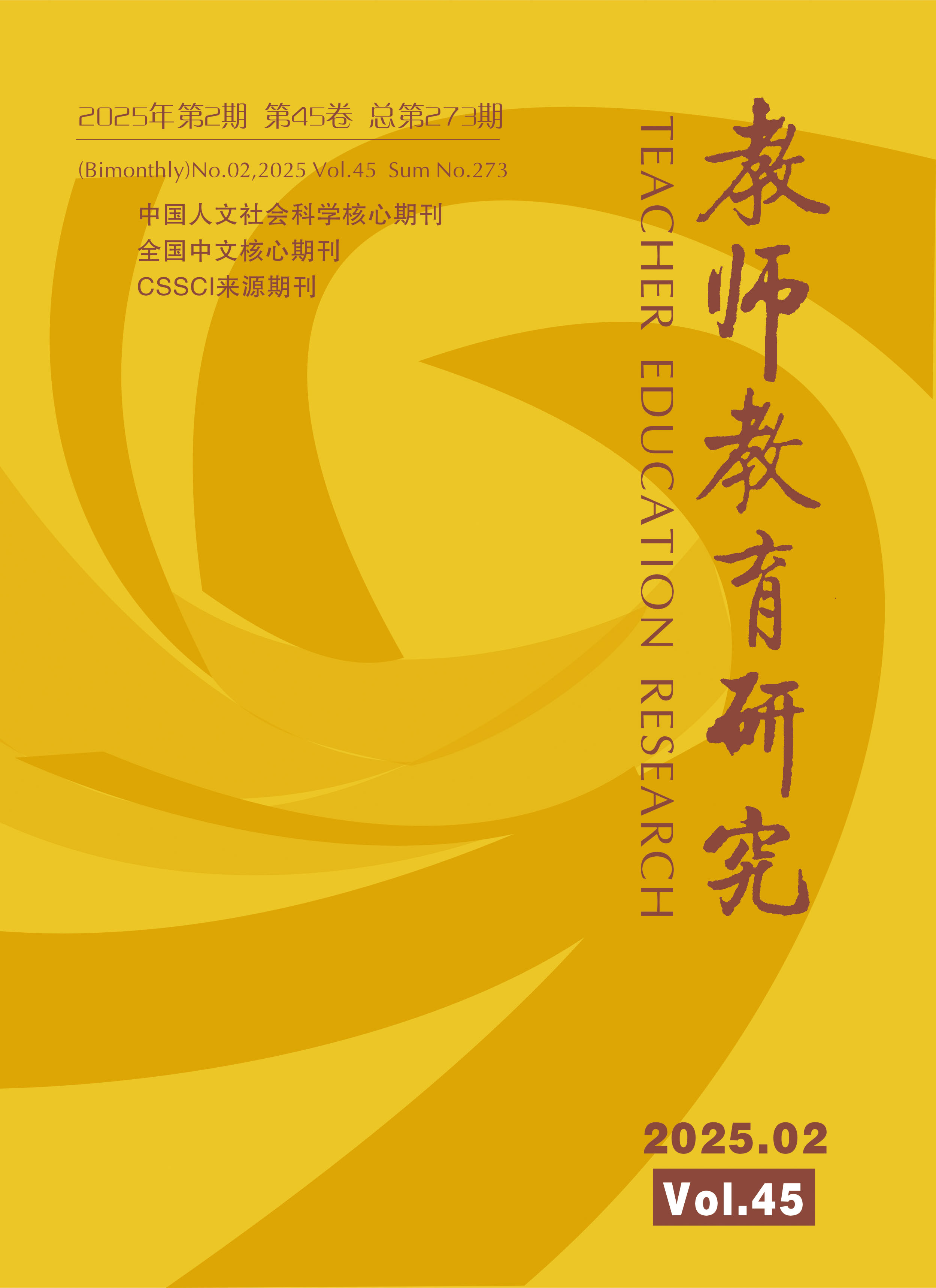刊名: 教师教育研究
主办: 北京师范大学;华东师范大学;高等学校教资培训交流北京中心
周期: 双月
出版地:北京市
语种: 中文;
开本: 大16开
ISSN: 1672-5905
CN: 11-5147/G4
邮发代号: 2-418
历史沿革:
曾用刊名:高等师范教育研究
期刊荣誉:核心期刊 CSSCI来源期刊来源期刊;国家新闻出版总署收录;Caj-cd规范获奖期刊;中国期刊网来源刊;百种重点期刊;社科双百期刊;全国优秀社科期刊
创刊时间:1989
“画蛇添足”——英语常见错句评析
【作者】 吴坤明
【机构】 安徽省芜湖市繁昌县黄浒中学
【摘要】【关键词】
【正文】在英语学习过程中,我们常常会发现同学们对一些词语没有很好地理解,在书写句子时出现重复现象,可谓是“画蛇添足”了。笔者现就这种情况列举一二,以飨读者。
1.一切都准备好了。
Wrong:Everything is ready well now.
Right:Everything is ready now.
说明:ready的本意就是“准备好”,不需再用well了。
2.小明很好地掌握了一门外语。
Wrong:Xiao Ming mastered a foreign language very well.
Right:Xiao Ming mastered a foreign language.
说明:master相当于“become an expert in(精通,熟练地掌握)”的意思,再用very well语义就重复了。
3.第二次世界大战爆发时(开始)时,他还是个小孩。
Wrong:When World WarⅡbegan to break out, He was still a child.
Right:When World WarⅡbegan(或broke out), He was still a child.
说明:本句中,begin和break out的意思差不多,二者都含有“开始”的意思,因此只用其中之一就行了。
4.我们将立即出发。
Wrong:We are about to start out at once.
Right:We are about to start out.
说明:be about to do sth.有“即将”的意思,它一般不与at once或immediately连用。
5.如今的年轻人对流行音乐越来越感兴趣了。
Wrong:Young people today are getting more and more interested in pop music than before.
Right:Young people today are getting more and more interested in pop music.
说明:more and more, better and better, less and less等一般不能与than ever或than before连用。
6.她低声地告诉她妈妈一个秘密。
Wrong:She murmured a secret to her mother in a low voice.
Right:She murmured a secret to her mother.
说明:murmur本身就含有“低语、杂音、咕哝、低声说”(?say sth in a low voice)的意思。如:He turned and?murmured something to the professor...?(他转身对教授小声说了些什么。)
7.昨天她把那本书还给图书馆了。
Wrong:She returned that book back to the library yesterday.
Right:She returned that book to the library yesterday.
我们在九月一日回到了学校。
Wrong:We returned back to school on September 1st.
Right:We returned to school on September 1st.
说明:return相当于give sth. back(归还)或go back的意思,因此不需再加back了。
8.露西,请随便吃些鱼。
Wrong:Lucy, please help yourself to eat some fish.
Right:Lucy, please help yourself to some fish.
说明:help oneself是“自用、自便”的意思,其后接介词 to这一结构本身就是“随便吃”的意思,再加eat就重复了。
9.她主动给那位老人让座。
Wrong:She offered to give that old man a seat.
Right:She offered that old man a seat.
说明:offer相当于be ready to give,因此它不能与give连用。
10.他们希望更好地改进工作。
Wrong:They wish to improve their work better.
Right:Their wish to improve their work .
说明:improve有“提高、改善、改进(make better)”的意思,通常不与better连用。如:He offered a suggestion toimprove?the plan.(他提出一个建议,以改进那项计划。)
11.上个星期天我收到了美国笔友的一封信。
Wrong:I heard a?letter?from my pen pal in America last?Sunday.
Right:I heard from my pen pal in America last?Sunday.
说明:hear from sb.相当于get a letter from sb.或receive a?letter?from sb.的意思,因此无需再加a letter了。
12.他记住了这篇课文。
Wrong:He memorized the text by heart.
Right:He memorized the text by heart.(或He learned the text by heart).
说明:memorize有learn…by heart的意思,它不能与by heart连用,否则句子会显得不伦不类的。
13.他跑的不够快,没能赶得上公交车。
Wrong:He did not run fast enough not to catch the bus.
Right:He did not run fast enough to catch the bus.
说明:not…enough to do sth.有“不---以致没有”的意思,动词不定式做状语,其前面的not是多余的。
其实,在教学中遇到学生这样重复表达的句子有很多,只要我们帮助学生正确理解这些词语,学生就会少犯错误,学习起来就容易得多了。
1.一切都准备好了。
Wrong:Everything is ready well now.
Right:Everything is ready now.
说明:ready的本意就是“准备好”,不需再用well了。
2.小明很好地掌握了一门外语。
Wrong:Xiao Ming mastered a foreign language very well.
Right:Xiao Ming mastered a foreign language.
说明:master相当于“become an expert in(精通,熟练地掌握)”的意思,再用very well语义就重复了。
3.第二次世界大战爆发时(开始)时,他还是个小孩。
Wrong:When World WarⅡbegan to break out, He was still a child.
Right:When World WarⅡbegan(或broke out), He was still a child.
说明:本句中,begin和break out的意思差不多,二者都含有“开始”的意思,因此只用其中之一就行了。
4.我们将立即出发。
Wrong:We are about to start out at once.
Right:We are about to start out.
说明:be about to do sth.有“即将”的意思,它一般不与at once或immediately连用。
5.如今的年轻人对流行音乐越来越感兴趣了。
Wrong:Young people today are getting more and more interested in pop music than before.
Right:Young people today are getting more and more interested in pop music.
说明:more and more, better and better, less and less等一般不能与than ever或than before连用。
6.她低声地告诉她妈妈一个秘密。
Wrong:She murmured a secret to her mother in a low voice.
Right:She murmured a secret to her mother.
说明:murmur本身就含有“低语、杂音、咕哝、低声说”(?say sth in a low voice)的意思。如:He turned and?murmured something to the professor...?(他转身对教授小声说了些什么。)
7.昨天她把那本书还给图书馆了。
Wrong:She returned that book back to the library yesterday.
Right:She returned that book to the library yesterday.
我们在九月一日回到了学校。
Wrong:We returned back to school on September 1st.
Right:We returned to school on September 1st.
说明:return相当于give sth. back(归还)或go back的意思,因此不需再加back了。
8.露西,请随便吃些鱼。
Wrong:Lucy, please help yourself to eat some fish.
Right:Lucy, please help yourself to some fish.
说明:help oneself是“自用、自便”的意思,其后接介词 to这一结构本身就是“随便吃”的意思,再加eat就重复了。
9.她主动给那位老人让座。
Wrong:She offered to give that old man a seat.
Right:She offered that old man a seat.
说明:offer相当于be ready to give,因此它不能与give连用。
10.他们希望更好地改进工作。
Wrong:They wish to improve their work better.
Right:Their wish to improve their work .
说明:improve有“提高、改善、改进(make better)”的意思,通常不与better连用。如:He offered a suggestion toimprove?the plan.(他提出一个建议,以改进那项计划。)
11.上个星期天我收到了美国笔友的一封信。
Wrong:I heard a?letter?from my pen pal in America last?Sunday.
Right:I heard from my pen pal in America last?Sunday.
说明:hear from sb.相当于get a letter from sb.或receive a?letter?from sb.的意思,因此无需再加a letter了。
12.他记住了这篇课文。
Wrong:He memorized the text by heart.
Right:He memorized the text by heart.(或He learned the text by heart).
说明:memorize有learn…by heart的意思,它不能与by heart连用,否则句子会显得不伦不类的。
13.他跑的不够快,没能赶得上公交车。
Wrong:He did not run fast enough not to catch the bus.
Right:He did not run fast enough to catch the bus.
说明:not…enough to do sth.有“不---以致没有”的意思,动词不定式做状语,其前面的not是多余的。
其实,在教学中遇到学生这样重复表达的句子有很多,只要我们帮助学生正确理解这些词语,学生就会少犯错误,学习起来就容易得多了。


